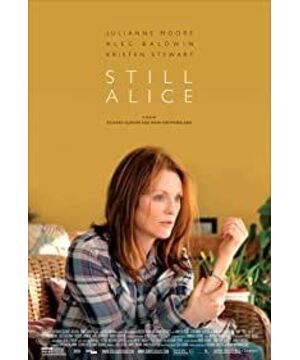Like all diseases, it has a cause, a process, and a cure in the future. No one around me is currently experiencing symptoms of dementia, and I hope never will.
I rewatched the movie to write a book, but it felt like I was experiencing dementia. I don't even remember why it was only given 4 stars originally. The whole film I only remember the speech there, and I thought it was the end for a while. But there's no need for the director to put something so promising at the end, because after the highlight of the speech there's more to say, which is the deteriorating condition of the dementia patient. Not all movies offer unrealistic hopes, and I wish I could remember that myself. The director himself is also a patient of a rare disease. It is a very good thing that he wants to present his painful world to the public and raise awareness. The purpose of filmmakers to increase their attention has been achieved, and it is hoped that there will be more research and measures to slow down the disease in the future. I should also pursue a health-related career in the future, and I also hope to help more people.
Halfway through it I remembered how I felt when I saw this movie myself two years ago. When it was time for bed, the lights in the dormitory automatically went out, and I hid in the bed and watched the whole movie on the small screen of my mobile phone. I'm in the same mood after watching it as I do now, surrounded by sadness and warm hope that matches the ending of the movie. Just like after the heroine got sick, I had something to say but couldn't find the right words. It's really comfortable to watch Baabaa acting, and the restrained and natural acting skills can also be very empowering. No one can hold on to supporting independent films for twenty years, but she did. A filmmaker has a duty to help raise the profile of the disadvantaged population, and she does. If AFI still ranks at the end of the century, she must not be the first, but she is the best actor in my mind.
View more about Still Alice reviews











